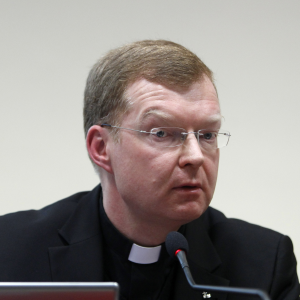Pope Francis has given his first interview on China praising it as a great country and a civilisation that the Church should respect.
Speaking to Asia Times, the website successor to the Asia Times newspaper, this week he said: “For me, China has always been a reference point of greatness. A great country. But more than a country, a great culture, with an inexhaustible wisdom.”
“It is necessary to recognise the greatness of the Chinese people, who have always maintained their culture. And their culture – I am not speaking about ideologies that there may have been in the past – their culture was not imposed.”
Francis has expressed a hope to visit China, and for many years the Vatican has been working to establish full diplomatic relations with the country. During the one-hour interview the Pope called for Europe to be open to the contribution of the eastern world and to “run the risk of balancing this exchange for peace”.
He said: “The western world, the eastern world and China all have the capacity to maintain the balance of peace and the strength to do so. We must find the way, always through dialogue; there is no other way.”
The Pope went on to praise the Chinese government for ending the one-child policy and, in a historic first, conveyed Chinese New Year greetings to President Xi Jinping and the country saying: “The world looks to this great wisdom of yours.”
As a young man Francis had wanted to be a missionary in the Far East. During the interview, which was conducted by Asia Times columnist and university lecturer Francesco Sisci, he mentioned Matteo Ricci (1552-1610), a Jesuit missionary famed for his deep understanding of Chinese culture.
Sisci’s exclusive interview took place in a Vatican hall decorated with a painting of Our Lady Undoer of Knots, in which she performs the miracle of untying impossible knots. Sisci said the interview was in some respects the Pope’s way of blessing China.
Under Pope Francis and his chief diplomat, Cardinal Pietro Parolin, the Vatican’s Secretary of State, there are hopes of a breakthrough in normalising Sino- Church relations. In a previous role, Parolin worked on contacts with China from 2002 to 2009, coming close to reaching a deal.
The Chinese Communist regime currently sanctions a state-run Catholic Church, which exists alongside an underground one.
The government appoints bishops to the state-run Church, an arrangement that has been a major sticking point for the Vatican in its hopes to normalise relations. On occasion, bishops have been approved by both Churches, but there have also been Catholic priests imprisoned by the Communist regime. For its part, the Holy See has said it would be willing to move its embassy from Taiwan to mainland China.
Last October, a delegation from the Secretariat of State and the Congregation for the Evangelization of Peoples met Beijing officials, and talks between the two sides are ongoing.
04 February 2016, The Tablet
Francis raises hopes of breakthrough in relations with China
 Loading ...
Loading ...
Get Instant Access
Subscribe to The Tablet for just £7.99
Subscribe today to take advantage of our introductory offers and enjoy 30 days' access for just £7.99

